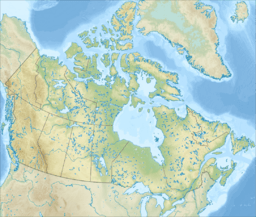Basler Lake facts for kids
Quick facts for kids Basler Lake |
|
|---|---|
| Location | Northwest Territories, Canada |
| Coordinates | 63°55′29.5″N 116°00′23.0″W / 63.924861°N 116.006389°W |
| Type | lake |
Basler Lake is a large lake located in the Northwest Territories, Canada. It is about 175 kilometers (109 miles) northwest of Yellowknife, the capital city of the Northwest Territories. This lake is an important part of the natural landscape in this northern region.
Contents
What is Basler Lake?
Basler Lake is a natural body of fresh water. It is one of many lakes found across the vast and beautiful Canadian North. Lakes like Basler Lake are formed in different ways. They can be created by glaciers, rivers, or even volcanic activity.
Where is Basler Lake located?
Basler Lake is found in the Northwest Territories. This territory is a large part of northern Canada. It is known for its wild nature and many lakes and rivers. The lake's exact location is at 63°55′29.5″N 116°00′23.0″W. This helps scientists and explorers find it on a map.
Why are lakes important in Canada?
Lakes like Basler Lake are very important for many reasons. They provide homes for different kinds of fish and other wildlife. They also offer fresh water, which is essential for all living things. Many people enjoy activities like fishing, boating, and exploring around these lakes.
Exploring the Northwest Territories
The Northwest Territories is a huge area with a unique environment. It has long, cold winters and short, cool summers. The land is often covered in forests and tundra. Tundra is a type of treeless plain found in very cold regions.
What kind of wildlife lives near lakes?
Many animals depend on lakes for survival. You might find fish, birds, and mammals living near Basler Lake.
- Fish like pike and walleye often live in these waters.
- Birds such as loons and ducks use the lake for nesting and feeding.
- Animals like moose and beavers can be seen along the shorelines.
How do lakes affect the environment?
Lakes play a big role in the environment. They help control the climate by storing heat in summer and releasing it in winter. They also filter water, making it cleaner. The plants and animals in and around lakes form a delicate ecosystem. This means they all depend on each other to survive.
 | Lonnie Johnson |
 | Granville Woods |
 | Lewis Howard Latimer |
 | James West |


